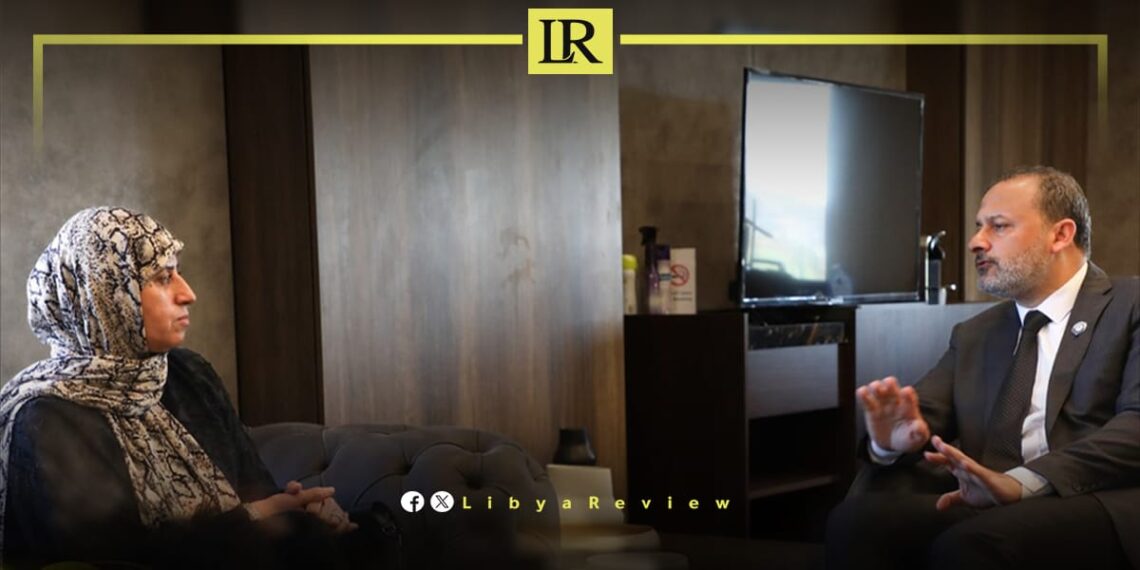In a bid to enhance cooperation between academic institutions and legislative bodies, Dr. Sultana Al-Mismari, Deputy Chair of the Parliamentary Committee on Education Affairs, held a strategic meeting today with Dr. Ezzedine Al-Darsi, President of the University of Benghazi, at the university’s main campus.
The meeting focused on strengthening postgraduate education programs at the university, addressing both achievements and pressing challenges. Dr. Al-Darsi highlighted the university’s ongoing efforts to elevate postgraduate studies as a cornerstone of academic and national development.
A detailed review was conducted on the current state of graduate programs, with emphasis placed on existing obstacles — ranging from limited resources and supervision gaps to infrastructure constraints. The discussion centered on the need to overcome these challenges in order to produce highly qualified graduates who meet the demands of the Libyan labor market and society.
One of the key topics was the Department of Social Work within the Faculty of Arts. Both parties stressed the importance of investing in this critical discipline due to its pivotal role in addressing societal issues and strengthening the country’s social fabric.
Dr. Al-Mismari affirmed the Parliament’s support for enhancing academic standards and pledged to advocate for greater institutional backing to ensure the sustainability of advanced education pathways in Libya.
This high-level dialogue reflects growing momentum for reform in Libya’s higher education sector and underlines the role of legislative-academic partnerships in shaping a knowledge-based society.
Libya has been in chaos since a NATO-backed uprising toppled longtime leader Muammar Gaddafi in 2011. The county has for years been split between rival administrations.
Libya’s economy, heavily reliant on oil, has suffered due to the ongoing conflict. The instability has led to fluctuations in oil production and prices, impacting the global oil market and Libya’s economy.
The conflict has led to a significant humanitarian crisis in Libya, with thousands of people killed, and many more displaced. Migrants and refugees using Libya as a transit point to Europe have also faced dire conditions.
The planned elections for December 2021 were delayed due to disagreements over election laws and the eligibility of certain candidates. This delay has raised concerns about the feasibility of a peaceful political transition.
Despite the ceasefire, security remains a significant concern with sporadic fighting and the presence of mercenaries and foreign fighters. The unification of the military and the removal of foreign forces are crucial challenges.


